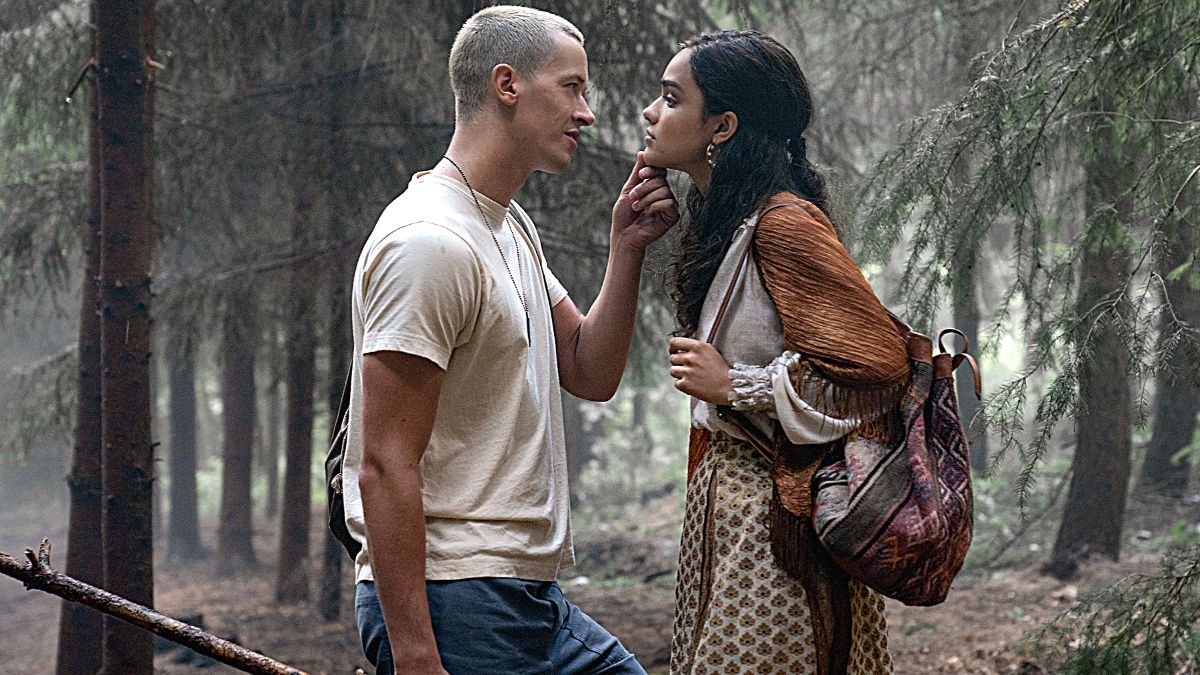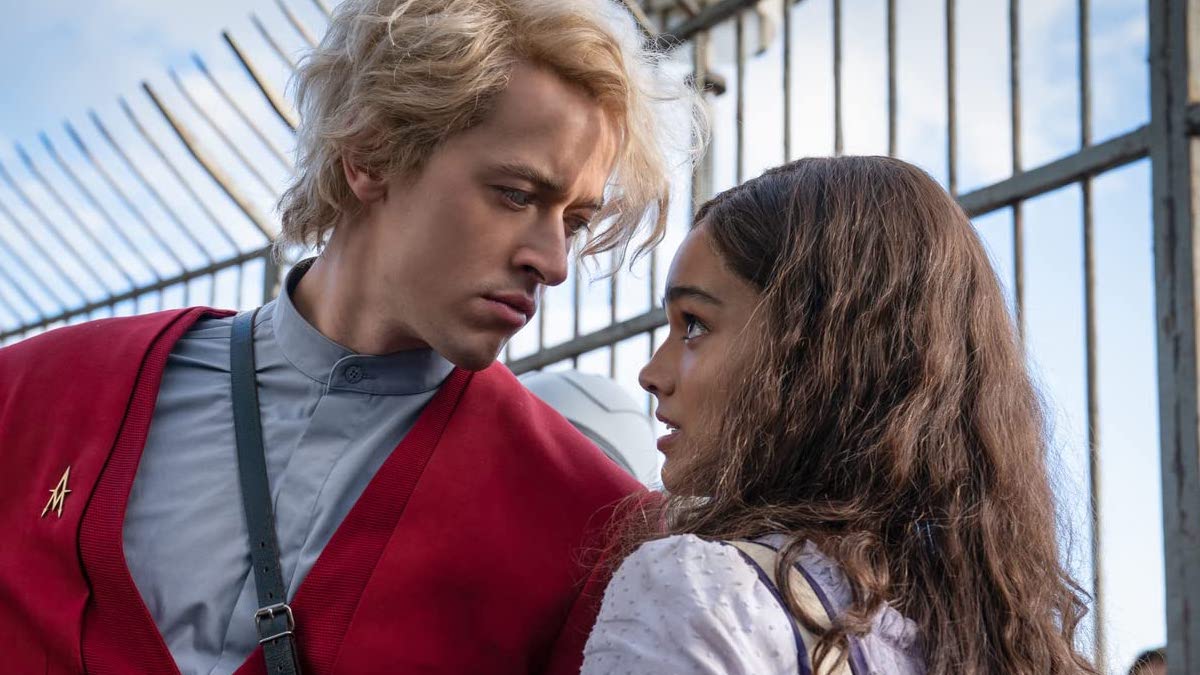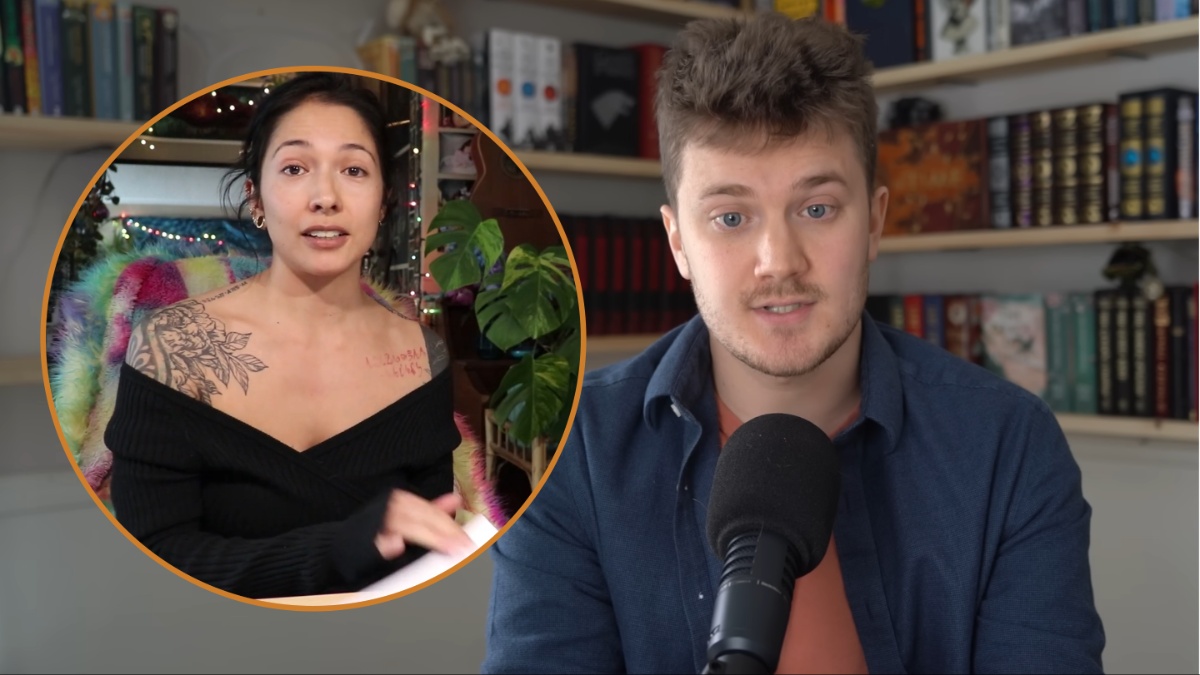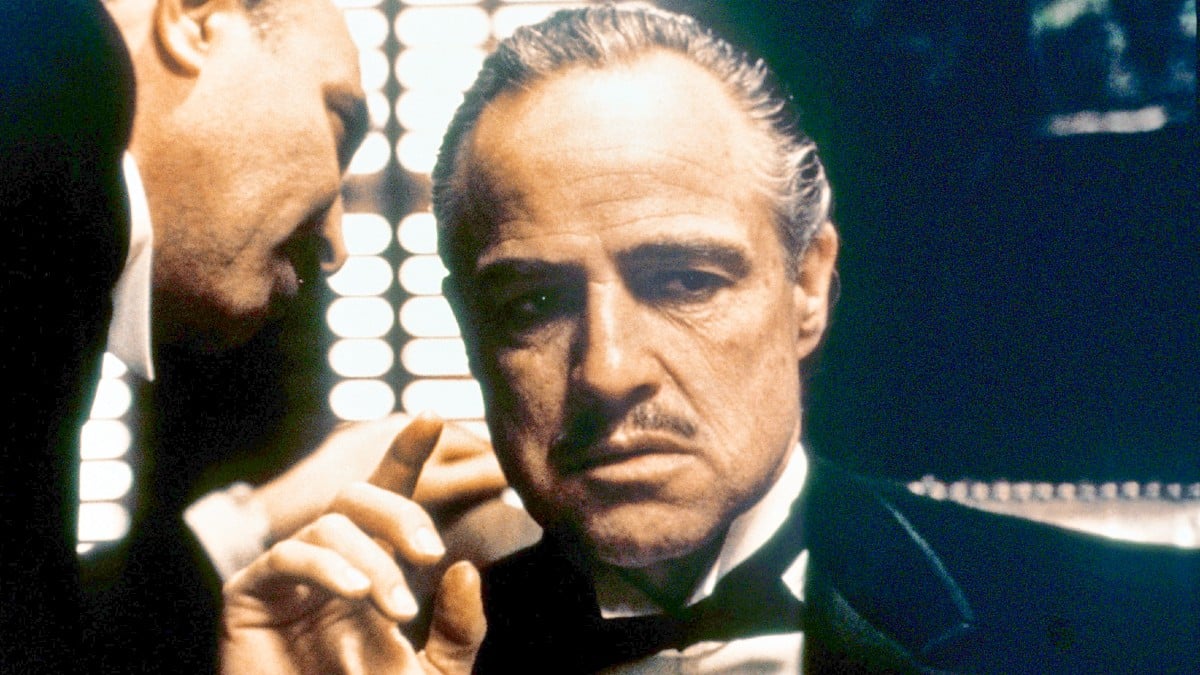This article contains major spoilers for both the Ballad of Songbirds and Snakes book and its forthcoming film adaptation.
The Ballad of Songbirds and Snakes is a fascinating character study of President Snow, the terrifying villain of the original Hunger Games trilogy.
Also penned by Suzanne Collins, the 2019 book takes fans of the dystopian series back to Snow’s adolescence and his time as a student in the Academy and a mentor in the 10th Hunger Games. That was the first time mentors were given to each of the tributes, as the Academy’s brightest minds were paired with a competitor and tasked with coming up with ways to make the Hunger Games more appealing to audiences. Coriolanus Snow, the future president of Panem, was paired with the District 12 female tribute, Lucy Gray Baird.
Does Snow kill Lucy Gray in The Ballad of Songbirds and Snakes?

It is likely. Although Collins keeps it purposefully ambiguous, it’s heavily implied that one of the bullets shot at random by Coriolanus in the middle of the District 12 woods ended up striking Lucy Gray, who had been hiding from her scorned lover, fatally. She was never heard from again, and people believed she had been killed by the District Mayor in relation to the death of his daughter. Because there’s no mention of her body, it’s possible she ran and hid in District 13, which was believed to be deserted at that time.
What’s worse, Lucy Gray was the winner of the 10th Hunger Games, but because of the controversies surrounding the event that year, including multiple mentor deaths, treason, and cheating, the Head Gamemaker, Dr. Gaul, decided to destroy any record of it. Lucy Gray was not only killed at a young age but also erased from history, dying a second death by being forgotten. Lucy Gray becomes a lot like a ghost, an immaterial thing, just like the William Wordsworth poem her name is based on.
Why did Snow kill Lucy Gray?

There’s only one character in The Ballad of Songbirds and Snakes whose thoughts the readers are entirely privy to, and that’s Coriolanus Snow. We know he has a hard time trusting people and believes them all to be duplicitous and inherently savage, as a result, his relationship with Lucy Gray is an odd one. He thinks he’s in love with her, but we know, from what we read, that what he’s interested in is complete control over her. Every time she exhibits any kind of independent thought, he gets defensive or jealous.
The world of Ballad is introduced to us via Coriolanus’s perspective, so we’re often inclined to read the characters around him the same way he does. Consequently, we never know exactly what Lucy Gray’s true intentions are, and when the protagonist’s doubts about her loyalty start to rise after her ex-boyfriend tells him she’s not trustworthy, we also begin to wonder if she was only using the future President to get ahead.
In the end, what drives Coriolanus to kill Lucy Gray is his belief that she is going to betray him. After agreeing to flee District 12 together, he accidentally implies that he killed their friend Sejanus. They eventually stop at the lake house and Lucy Gray informs her companion that she is going to get some katniss, but never returns. While looking for her, Coriolanus is led into a trap set up by Lucy Gray (or so we believe, because we never get to hear her side of the story) and bitten by a snake. The literal snake in the grass is the perfect symbolic visual for this story of tricks and twists, but did it pertain to Lucy Gray or Coriolanus? Maybe both?

When Coriolanus shoots random bullets into the air, hoping one would hit his target, the coven performer starts singing “The Hanging Tree,” a song about the execution of a rebel in the same place Sejanus was killed. As the mockingjays repeat after her, creating a deafening choir, Coriolanus is overcome with a mix of guilt, fear, and anger at her betrayal and the shamefulness of his actions, and fires more rounds.
Although his past actions and murders had been pragmatic, somewhat accidental, or in self-defense, Lucy Gray’s death marks Coriolanus’s first true evil act, shooting to kill someone he supposedly cared deeply for, but couldn’t control. This kills any sort of humanity left in him and transforms him into the disgusting old man we know from the original Hunger Games trilogy. Because his victims had all been district people or traitors to the Capitol, Coriolanus never suffered any consequences and was even rewarded for his actions.











Published: Nov 7, 2023 03:51 pm